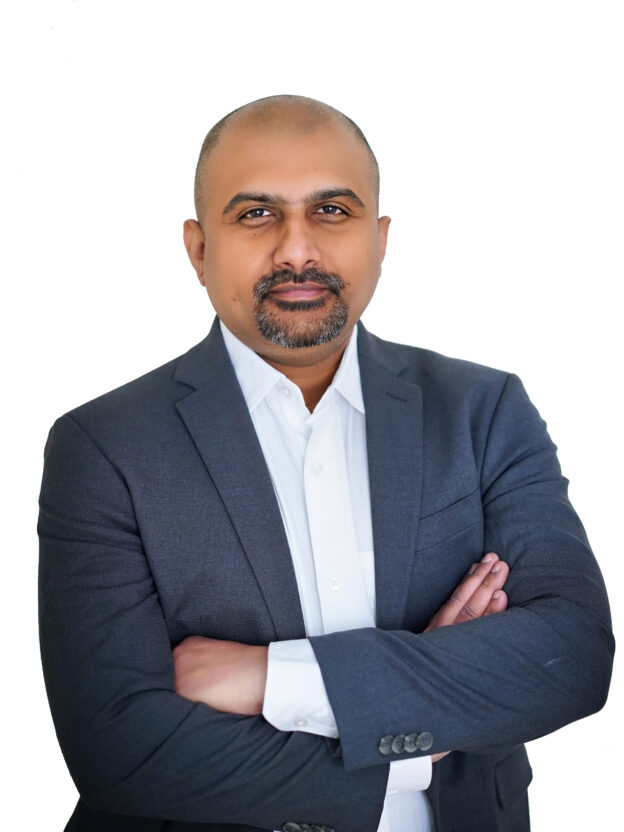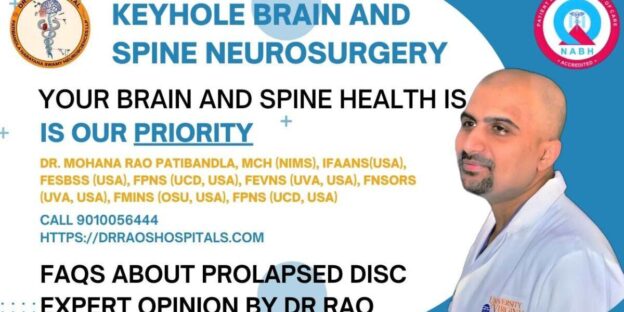Comprehensive Guide to Spine Surgery and Pain Management: Dr. Rao at Dr. Rao’s Hospital
People with spinal cord injuries, herniated discs, or chronic pain frequently seek out complex procedures like spine surgeries. With the proper care and expertise, these surgeries can significantly improve a patient’s quality of life. Dr. Mohana Rao Patibandla, an acclaimed neurosurgeon at Dr. Rao’s Hospital in Guntur, has gained international recognition for his exceptional skills in spine and neurological surgery. His hospital is renowned for offering advanced treatment options, including minimally invasive spine surgeries, and consistently delivering successful outcomes.
In this article, we will explore the various aspects of spine surgery, including common causes of pain after surgery, specific procedures, and why Dr. Rao’s Hospital is a top choice for patients worldwide.
Pain After Spine Surgery: Understanding the Causes
Pain after spine surgery is one of the most common concerns for patients. While the goal of spinal surgery is to relieve pain, some patients experience discomfort or complications during recovery. There are several reasons why pain might persist after surgery, including:
- Inflammation: The healing process may cause temporary swelling around the surgical site.
- Nerve sensitivity: Nerves that were compressed pre-surgery might take time to recover fully, leading to ongoing pain.
- Scar tissue: In some cases, scar tissue may form near the nerves, causing discomfort.
Patients must communicate with their doctors during recovery to ensure proper pain management. Dr. Rao’s Hospital offers comprehensive postoperative care plans to reduce pain and promote healing.
Neurological Spine Conditions: Causes and Treatments
The neurological spine involves conditions affecting the spinal cord and surrounding nerves. These conditions can cause debilitating pain, weakness, or loss of function. Common issues include:
- Herniated discs
- Spinal stenosis
- Degenerative disc disease
- Spinal tumors
As a leading neurosurgeon specialist, Dr. Rao treats complex neurological spine conditions using cutting-edge technology and minimally invasive techniques. His extensive experience ensures the best possible outcomes for patients with neurological spine disorders.
Surgery Pain: How to Manage Discomfort
Managing surgery pain is a critical part of the recovery process. Post-surgery pain is expected but should decrease over time as the body heals. At Dr. Rao’s Hospital, pain management strategies include:
- Medication: Anti-inflammatory drugs, muscle relaxants, or nerve pain medications.
- Physical therapy: Gentle exercises to restore strength and mobility.
- Lifestyle modifications: Proper posture and avoiding strenuous activities help speed up recovery.
Dr. Rao ensures that every patient receives personalized care, focusing on minimizing postoperative pain.
India’s Best Doctor Name: Dr. Mohana Rao Patibandla
When searching for the best spine surgeon in India, many patients discover the outstanding reputation of Dr. Mohana Rao Patibandla. Recognized for his contributions to spinal surgery and neurosurgery, Dr. Rao has been named one of India’s best doctors. His patient-first approach and expertise in minimally invasive surgeries set him apart as a leading figure in the healthcare industry.
Cervical Back Surgery: Effective Solutions for Neck and Back Pain
Cervical back surgery refers to procedures to treat conditions affecting the cervical (neck) spine region. These conditions can cause severe neck pain, radiating pain to the shoulders or arms, and even numbness in the hands. Standard cervical spine procedures include:
- Anterior cervical discectomy and fusion (ACDF): A procedure to remove a herniated or degenerative disc and fuse the vertebrae.
- Cervical laminectomy: Removes part of the vertebrae to relieve pressure on the spinal cord.
Dr. Rao’s advanced expertise in cervical spine surgeries ensures quick recovery times and significant relief from pain for patients suffering from neck-related issues.
Back Pain After Spine Surgery: What You Need to Know
While spine surgery is designed to alleviate pain, some patients may experience back pain after spine surgery. This could be due to:
- Incomplete healing: Pain that continues as the spine adjusts post-surgery.
- Adjacent segment disease: When a neighboring disc degenerates following a spinal fusion.
- Infection or hardware problems: In rare cases, postoperative issues such as infection or hardware failure may lead to persistent pain.
Advanced diagnostic techniques at Dr. Rao’s Hospital identify the root cause of post-surgery pain, ensuring that appropriate treatment is promptly provided.
Cervical Spine Procedures: Advanced Surgical Techniques
The cervical spine plays a crucial role in supporting the head and protecting the spinal cord. Dr. Rao performs various cervical spine procedures designed to correct structural problems, relieve nerve compression, and improve patient mobility. Some standard procedures include:
- Cervical fusion: Fusing two or more vertebrae to provide stability.
- Cervical disc replacement: Replacing damaged discs with artificial ones to preserve movement.
Dr. Rao utilizes the latest techniques to ensure the highest level of success in cervical spine surgeries, minimize risks, and optimize recovery.
Pain After Lumbar Surgery: Causes and Solutions
Pain after lumbar surgery can occur for various reasons, including inflammation, scar tissue formation, or issues with spinal hardware. Dr. Rao’s Hospital offers advanced pain management solutions and follow-up care to address such problems. Postoperative care plans are personalized, focusing on pain relief and functional recovery.
India’s Best Doctor Name for Spine Surgery
Patients seeking treatment from India’s best doctor for spine surgery often choose Dr. Mohana Rao Patibandla. His extensive training in India and internationally ensures he can handle the most complex spine and brain surgeries. Under his leadership, Dr. Rao’s Hospital has become one of the top destinations for international and local patients seeking advanced spinal care.
Pain in Back After Surgery: Effective Treatments
Pain in the back after surgery can be frustrating, but it’s important to remember that healing takes time. Further diagnostic tests may be needed to evaluate issues such as nerve compression or hardware displacement if pain persists. Dr. Rao emphasizes thorough postoperative follow-ups to ensure patients recover fully and minimize the chances of chronic pain.
Best Spine Dr: Why Dr. Rao is the Top Choice
Regarding finding the best spine doctor in India, Dr. Rao stands out due to his high success rates and commitment to patient care. His ability to perform complex spine surgeries with minimally invasive techniques makes him the go-to specialist for many patients suffering from chronic spinal conditions.
Best Back Surgeon for Minimally Invasive Techniques
As the best back surgeon in India, Dr. Rao has pioneered minimally invasive spine surgeries that result in shorter recovery times, less postoperative pain, and more minor scars. These innovative procedures are particularly beneficial for patients with lumbar issues or herniated discs.
Spine Surgeon in Chennai: Top Choices for Treatment
For patients seeking a spine surgeon in Chennai, Dr. Rao’s Hospital in Guntur offers an excellent alternative. With world-class facilities, highly trained staff, and a reputation for delivering successful outcomes, many patients from Chennai and across India travel to Dr. Rao’s Hospital for their spinal surgeries.
Neurosurgeon Specialist: Expertise in Complex Cases
As a leading neurosurgeon specialist, Dr. Rao handles the most challenging cases, including spinal tumors, herniated discs, and spinal stenosis. His focus on patient-centered care and his use of cutting-edge technology ensure that each patient receives the best possible treatment.
Neck Pain Surgery: Relief for Chronic Pain
For patients with chronic neck pain, neck pain surgery may offer significant relief. Dr. Rao specializes in treating neck conditions through surgical and non-surgical interventions, helping patients return to a pain-free life.
Minimally Invasive Spine Surgery in India
At Dr. Rao’s Hospital, minimally invasive spine surgery in India has transformed patient outcomes. These techniques offer a less invasive approach to treating spinal conditions by minimizing tissue damage and reducing recovery times.
Dr. Rao’s Hospital: The Best Brain, Spine, and Endovascular Center in India
Located in Guntur, Dr. Rao’s Hospital is widely regarded as one of the best brain, spine, and endovascular centers in India. The hospital provides a comprehensive range of treatments, from keyhole neurosurgery to advanced endovascular procedures. Dr. Rao’s team offers personalized care, making the hospital a top choice for local and international patients.
Affordable Medical Tourism in India
With the rise of affordable medical tourism in India, patients worldwide are turning to Dr. Rao’s Hospital for top-quality care at a fraction of the cost compared to Western countries. The hospital provides international patients with customized care packages that include surgery, accommodation, and follow-up care, making it an attractive option for those seeking affordable yet world-class medical treatment.
In conclusion, Dr. Rao and his team at Dr. Rao’s Hospital have established themselves as leaders in brain, spine, and endovascular surgery. Whether you’re seeking relief from back pain or require advanced neurosurgical care, Dr. Rao’s expertise, combined with state-of-the-art medical technology, ensures that you are in the best hands.
Dr. Rao’s Contact Information:
- Phone: 9010056444, 9010057444
- Email: info@drraoshospitals.com
- Address: Old Bank St, GV Thota, beside AK Biryani Point, Guntur, Andhra Pradesh 522001
- Website: Dr. Rao’s Hospital


